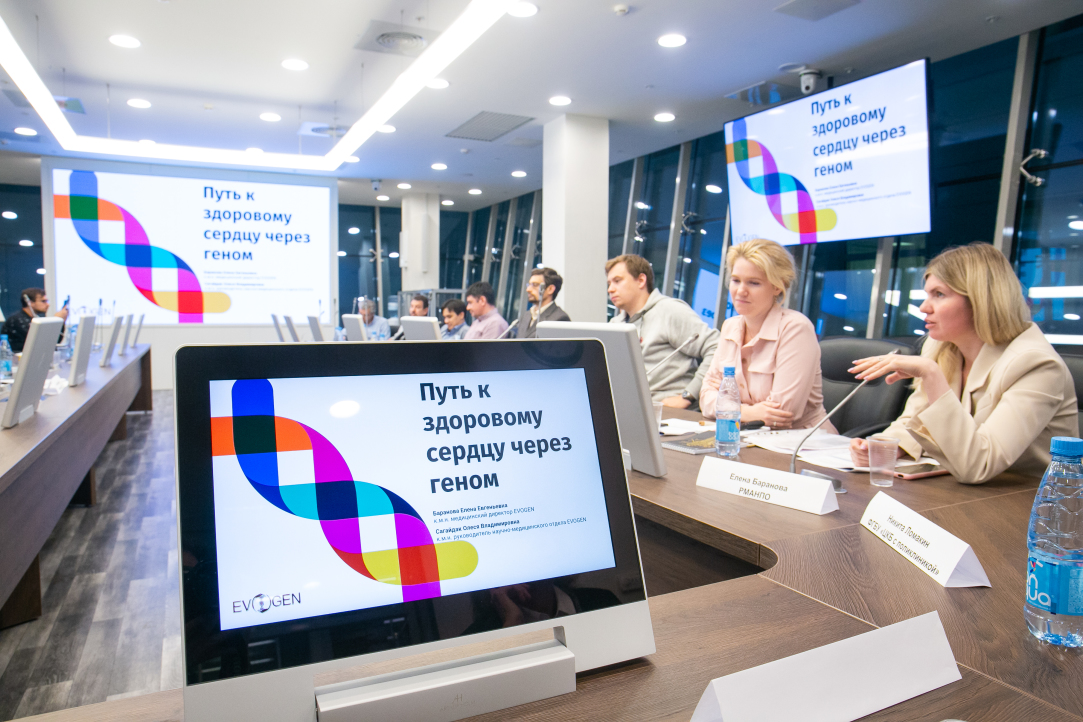Genetics of Cardiovascular Diseases Consortium Holds First Event

In early September, the first event of the Genetics of Cardiovascular Diseases consortium - an interdisciplinary forum "Cardiogenetics and Bioinformatics: Realities 2021" - was held at HSE University. The forum marked the start of the consortium after signing an agreement on scientific cooperation between the participating organizations. The forum was attended by heads and representatives of scientific centres and institutes from Moscow, St. Petersburg, Novosibirsk, Arkhangelsk, Tyumen and Surgut.
Maria Yudkevich, HSE University Vice-Rector, Dmitry Sychev, Rector of the Russian Medical Academy of Continuing Professional Education, Marina Samushiya, Vice-Rector for Research of the Central State Medical Academy, Ivan Arzhantsev, Dean of the HSE University's Faculty of Computer Science spoke at the opening.
The forum provoked a lively discussion of the development of cardiogenetics theory and practice in Russia. The issues of the current state of cardiogenetics in Russia were discussed, in particular, how the knowledge of variations in the genome can help practising doctors. Specific examples were presented of how the information about a patient's genome helps make decisions in clinical practice. The problems associated with the effects of anticoagulants were extensively discussed and the need for knowledge of genetics to prescribe the correct dose of commonly used anticoagulants after strokes and heart attacks and, at present, in the Covid-19 treatment was emphasised.
The use of a polygenic risk assessment scale in cardiology has been widely discussed. Of great interest is the possibility of genetic diagnosis of "bad" fats, which cannot be corrected by diet. Such diseases can be treated by the use of medication from childhood onwards, which greatly improves the quality of life. The problems of genetic diagnosis of sudden cardiac death at a young age were also discussed. To detect new genetic mutations in such cases it is necessary to have information about the deceased's genome as well as that of his parents. In addition, the need for appropriate legislation to study the deceased's cardiac tissue was highlighted.
The talk touched upon the development of genetic centres in the regions. Representatives from Surgut shared their experience in establishing modern biotechnology centres.
Rector Dmitry Sychev of the Russian Medical Academy of Continuing Professional Education in his report presented the results and prospects of cooperation between the HSE University bioinformaticians and the Academy's clinical pharmacologists in the field of pharmacogenetics and pharmacogenomics of drugs used for cardiovascular diseases and above all antithrombotic drugs (antiaggregant and anticoagulant drugs). The bioresource DNA collections of patients with adverse reactions available at the Research Institute of Molecular and Personalised Medicine are planned to be used in a large consortium project, which was discussed in detail on the second day of the forum.
The forum ended with a discussion of the first pilot projects of the consortium. The need for pharmacoeconomic research in cardiogenetics and the need for educational activities in the form of short schools for doctors and bioinformaticians in nosologies, where existing practices in the use of patient genome information for diagnosis and treatment of disease will be examined.
The participants of the consortium planned to hold an interdisciplinary forum "Cardiogenetics and Bioinformatics: Realities 2022" next year.
Oleg Lavrov
President of KM-Alliance Russia, Professor
The interdisciplinary forum of our consortium once again confirmed the importance of integration and cooperation. Even in the first step, we saw opportunities to support the participants' existing projects and discussed the contours of a new pilot project. The fact that there is a patient service for people with genomic peculiarities in the pilot project is important, as both the scientific results and the new developments need to be used by the end-user as quickly as possible.
Maria Poptsova
Laboratory Head
The forum once again made it clear that cardiogenetics is in its infancy and is developing in small isolated areas scattered across Russia. The task of the consortium is to unite the efforts of individual small groups and accelerate the development of this field by a factor of ten.
